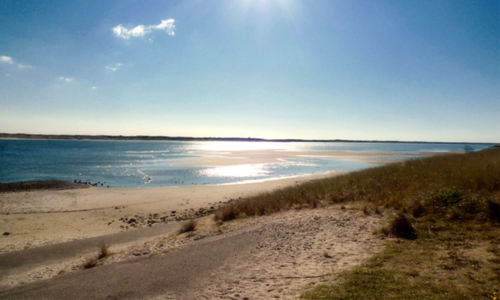I can imagine what the Texelaars thought when they heard about a bunch of students from Delft University of Technology would come to Texel, and think of different ways that the island could become more sustainable. They assumed to be given sheets filled with data and calculations, showing where new technologies would be implemented, and how much kWh this would provide for Texel, showing disregard to all culture and tradition on Texel.
Surprised must they have been, when they saw our presentation on the 16th of January. Where they expected windmills, they got a Happy Texel Index. Where they expected PV-panels, they got sightseeing routes. As stated in our presentation and booklet, Texel has a very fertile ground. There are many small initiatives related to sustainability. Texel is already pretty sustainable. It just doesn't really promotes itself as such.
This especially became clear to me when I started hearing about many other initiatives related to sustainability, which we hadn't immediately been able to find through the internet. Researching an island without visiting it beforehand clearly had its downsides. Not only does this prevent you from finding, sometimes crucial, information, but it also forces you to make assumptions.
This one week on Texel was extremely valuable to me. Not only due to the fact that our scenery changed from office spaces at the TPM faculty to the island of Texel, but mostly because we got into contact with people from Texel. Our subsystem (Health, Happiness and Well Being) was focussed on connecting our ideas to people from Texel, and therefore contact with the Texelaars as of great importance. It is in this week that some of our focal points in our subsystem design shifted towards what eventually became the Happy Texel Index. To later read this in last Friday's (16th of January) newspaper was priceless. Seeing the positive reaction of many different types of Texelaars made up for all the work we had put in during this week and the many weeks before.
Where the Texelaars expected us to present technically innovating ideas, we came up with an idea that made Texel more connected than ever. Socially and technically. Jutter 2030 was born, and I hope it will live for many years!
